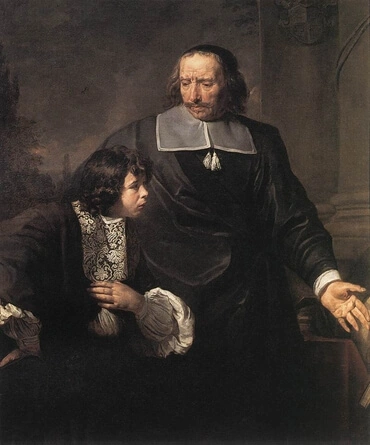Man (male)

The relationship between men and women is deep and nuanced, and one entire book of the Writings -- Conjugial Love -- is devoted to the subject. So we can hardly offer a full explanation here. In a very general sense, though, the Writings say that men are creatures of intellect, driven by the love of growing wise; women, meanwhile are creations of affection, driven by the love of wisdom and the good that wisdom can do. They are formed this way to reflect the Lord's Divine Love and Divine Wisdom, and so that they can form marriages that reflect the unity of Divine Love and Divine Wisdom. Marking differences between men and women can be a touchy thing, but realistically it's easy to see that men tend to love acquiring knowledge whether it has any practical application or not. Many of them can spout out sports statistics or hold court on the workings of the internal combustion engine, even though it is knowledge they are not likely to ever use. They find such knowledge interesting for its own sake. It follows, then, that when the Bible speaks of men, the men represent facts, ideas, knowledge, truth, intellect and wisdom -- or in the negative sense falsity, twisted logic, and reasoning that is devoid of concern for others.
Arcana Coelestia #476
476. That 'male and female' means the marriage of faith and love has been stated and shown already. That is to say, 'male' or man (vir) means the understanding and what belongs to the understanding, and so what belongs to faith, while 'female' means the will, or what belongs to the will, and so what belongs to love. This also is why she was called Eve, from a word meaning life, which belongs to love alone. 'Female' therefore also means the Church, as also shown already, and 'male' the man (vir) of the Church. At present the subject is the state of the Church at the time it was spiritual and shortly to become celestial, which is why the word 'male' comes first, as it does also in 1:26-27. Furthermore the expression 'to create' has regard to the spiritual man. As soon however as that marriage has taken place, that is, the Church has become celestial, it is no longer called 'male and female' but 'Man' (Homo) who by virtue of the marriage means both. Consequently 'and He called their name Man', which means the Church, follows next.






